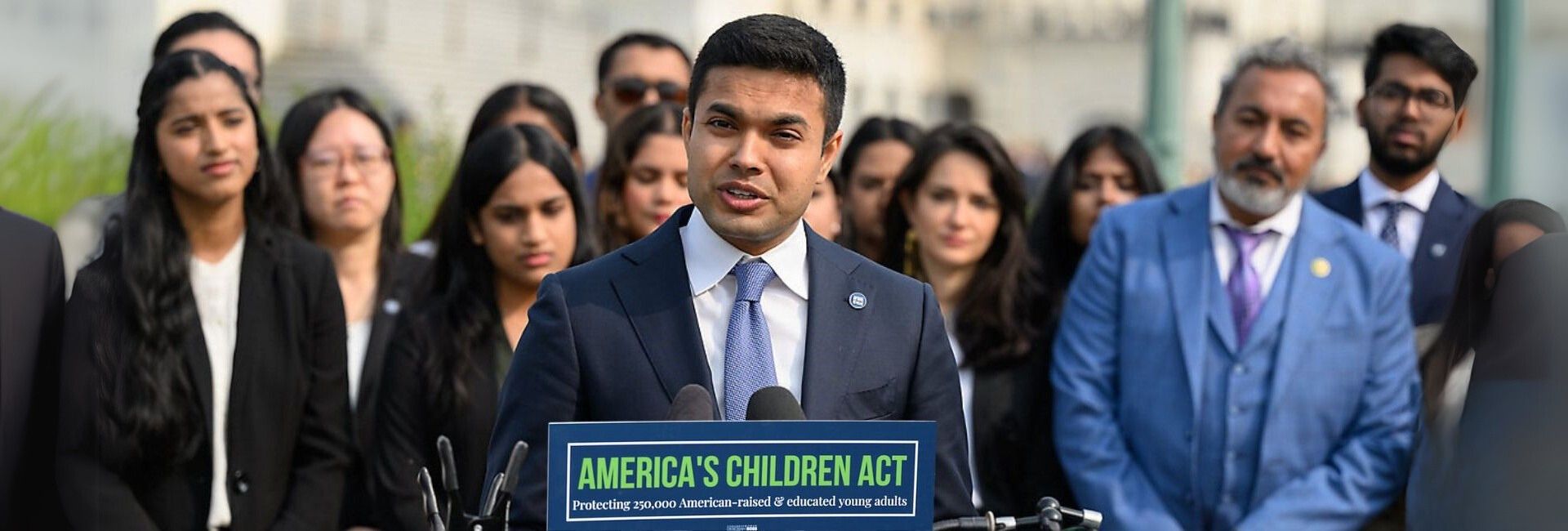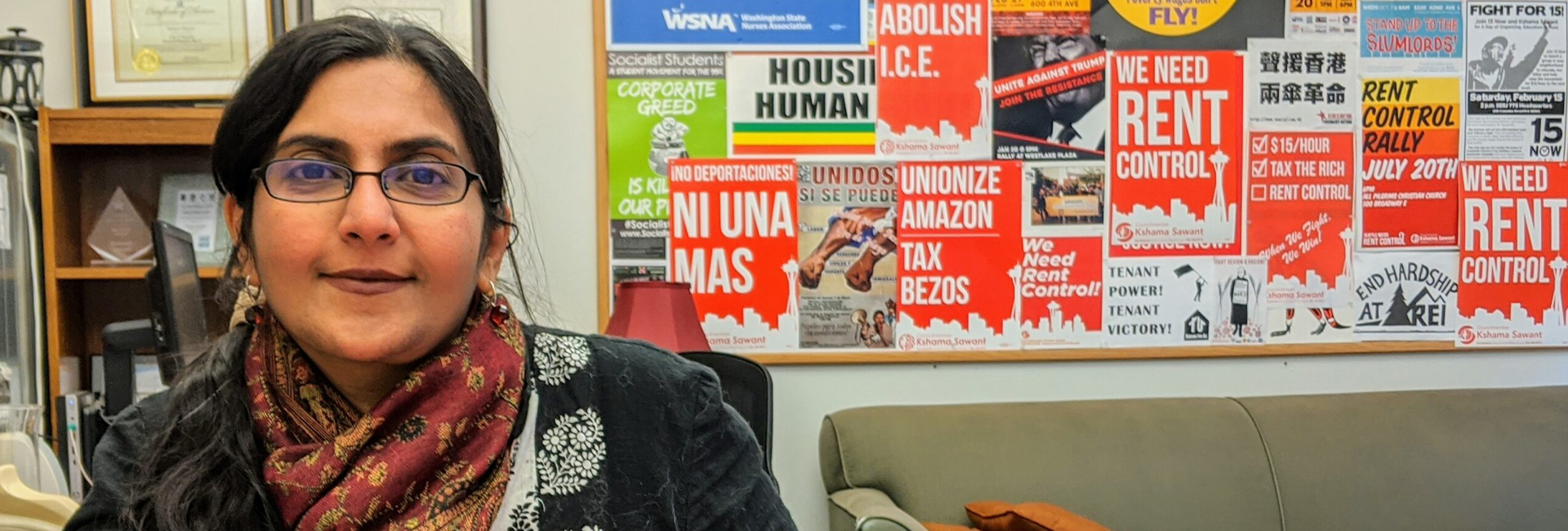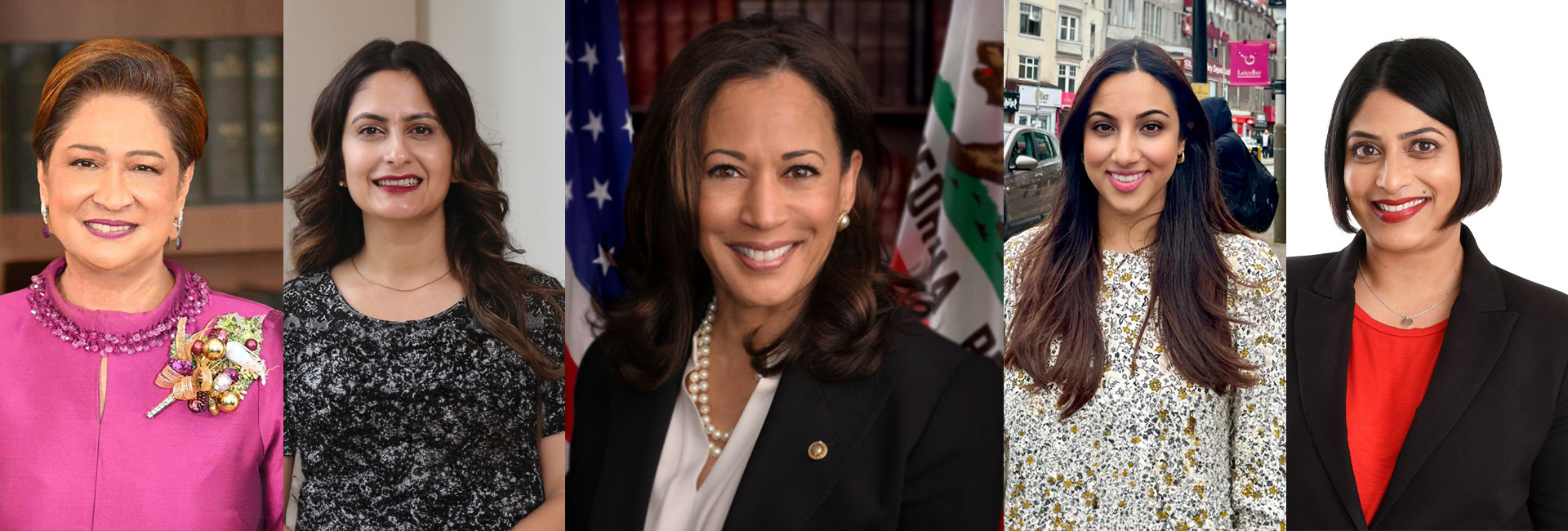(December 15, 2024) It was supposed to be a simple visit to Canada. Padma, a middle schooler from Houston, thought her family was on a vacation. Instead, she found herself sitting in a waiting room at the American Embassy in Ottawa, her excitement replaced by confusion. Her parents explained the truth: as immigrants on H-4 dependent visas, their lives in the US depended on renewing their paperwork to stay legally; they weren’t tourists, they were here to renew their visas. Without it, Padma wouldn’t be allowed back into the only country she’d ever known. “I thought we were going to have fun,” Padma recalls. “But they told me we needed to come here to be able to go back home.”
Padma’s story is shared by over 250,000 children in the United States known as Documented Dreamers—children who live in the country legally but remain at the mercy of a system that forces them to start over when they turn 21. In this legal limbo, they cannot work, vote, or even stay unless they apply for temporary visas, putting their futures in jeopardy.
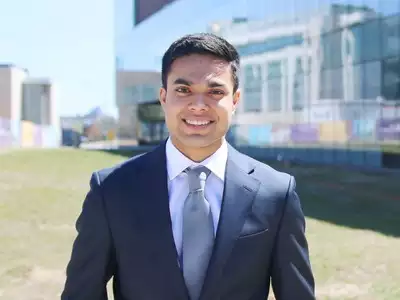
Dip Patel
At the heart of the fight for these children stands Dip Patel, a pharmacist-turned-advocate who refuses to let their struggles go unheard. “Most people assume that if you’ve lived in America long enough, you can just apply for citizenship,” the Global Indian said. “But that’s far from true.” His organisation, Improve The Dream, seeks to change this narrative and rewrite laws that have long neglected Documented Dreamers like Padma.
The Calling: From a Quiet Childhood to a Bold Advocate
Dip’s journey started in India, where he was born. At the age of four, his family moved to Canada, seeking better opportunities. A few years later, his parents became Canadian citizens. When Dip was nine, his family relocated again, this time to Southern Illinois, under the E-2 visa program—a program that allows foreign nationals to invest and run a business in the United States.
“Our journey began in Southern Illinois when I was nine,” Patel says. “Under the E-2 visa, my parents started a rural business in Illinois.” The visa allowed his family to live and work in America but came with a limitation: there was no pathway to citizenship, especially for children who aged out at 21.
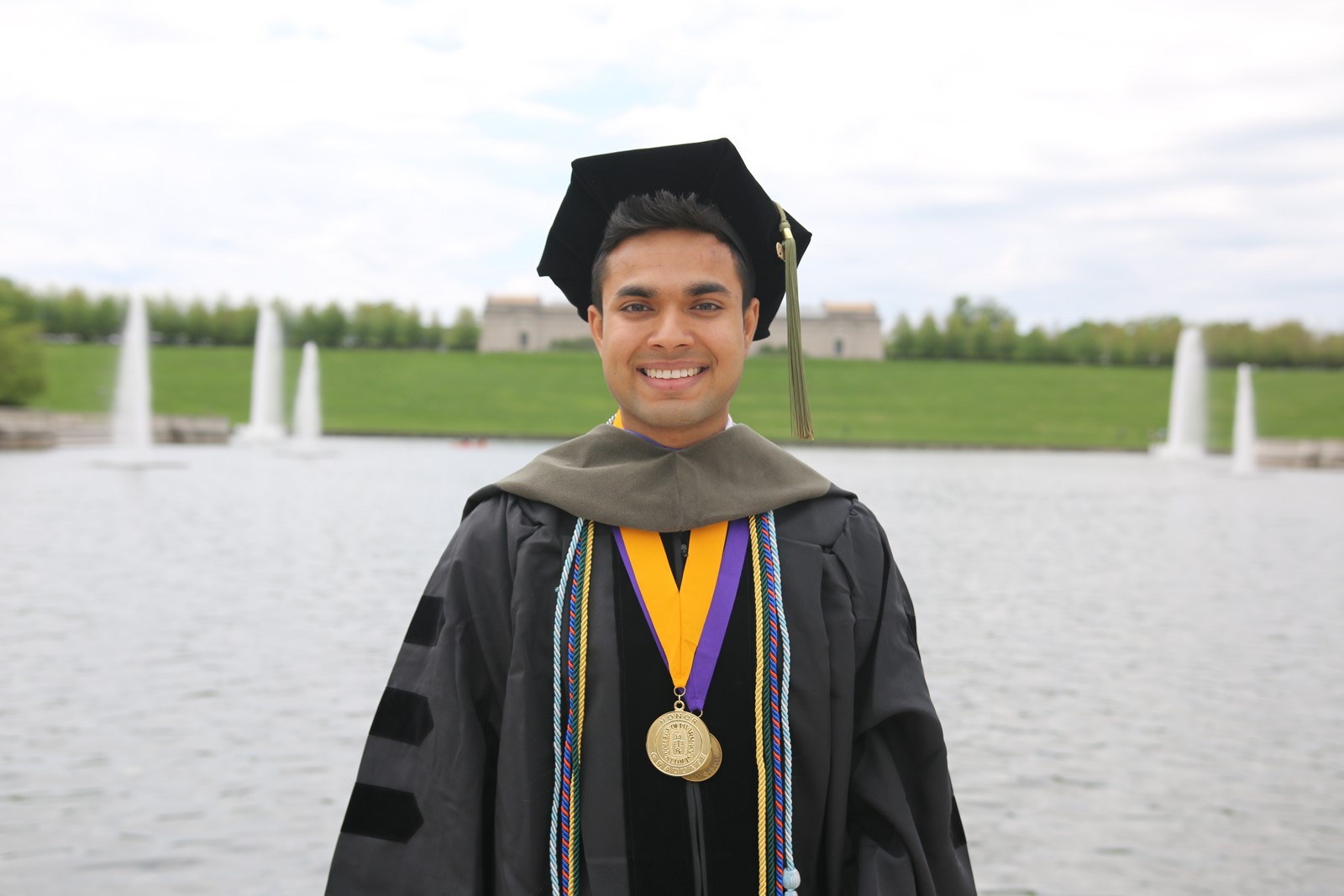
Like Padma, Patel grew up feeling every bit American. He played basketball with his schoolmates, studied for exams, and dreamed of a future in the medical field. But when he turned 16, a harsh reality hit him when he needed to get a driver’s license or start applying to colleges. “It was then I realized I might not be able to stay after I graduate.”
Despite trying to secure a green card, the backlog caused by per-country caps meant it could take decades. His family’s immigration status gave him temporary relief, but not the sense of security he craved. Fortunately, his enrollment in the Optional Practical Training (OPT) program gave him some breathing room. Still, he knew many others didn’t have the same privilege. “I knew this wasn’t just my problem,” he says. “There were thousands of kids like me.”
Trials and Tribulations: Building a Movement
Dip’s path to advocacy began during pharmacy school. It was a time of uncertainty, with talks of the Trump administration canceling the Deferred Action for Childhood Arrivals (DACA) program. “I knew there was going to be a push in Congress for a solution for the Dreamers,” Patel says.
In 2017, inspired by the Dreamers movement, Patel took his first steps as an advocate. He reached out to congressional and senate offices, sharing his story. “I naively reached out,” Patel recalls. “There wasn’t anyone at a national level talking about kids who had visa dependence and were ageing out.”
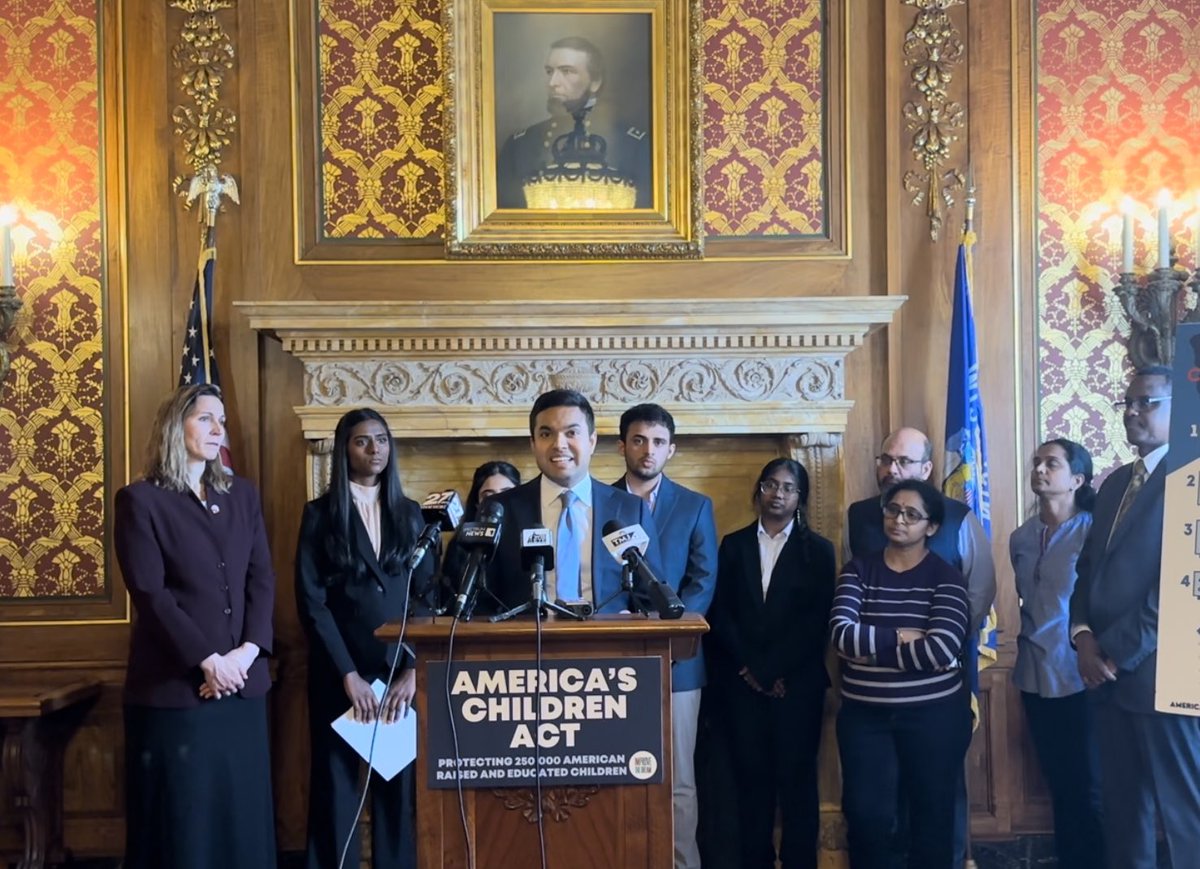
Over time, Patel’s efforts gave rise to Improve The Dream, a platform to advocate for immigrant children like himself who were documented but still marginalised. “Any child who grows up in the US should have the right to stay,” Patel says. “Most people assume those rights exist because it’s not brought up in conversations enough.” He started small, reaching out to other affected families and creating an online community where Documented Dreamers could share their stories. The movement grew organically, fuelled by a mix of heartbreak and hope.
The organization’s pivotal moment came in 2021 when Pareen Mhatre, an 18-year-old member, testified before the U.S. House Judiciary Committee. Her words resonated through Congress. “We’ve done everything right,” she said. “We followed the rules, but the system doesn’t work for us.”
The DACA program, introduced by the Obama administration, offers temporary protection from deportation and work authorization for undocumented immigrants but excludes children on dependent visas. “To qualify, you had to be unlawfully present on the announcement date,” explains Patel. “This leaves about 200,000 Dreamers in limbo—technically legal but without a clear path forward.” While legislative progress has helped some Dreamers secure long-term visas, Patel notes, “DACA is only a temporary fix. There’s still much work ahead.”
A Broader Fight: The Indian Diaspora and Immigration Reform
Dip’s advocacy also highlights the plight of the Indian diaspora in the United States. Indians are the second-largest immigrant group in the country, with over 4.8 million people. Many come on work visas like the H-1B, drawn to industries such as technology and healthcare. However, the same system that welcomes their expertise offers no direct path to permanent residency for their children.
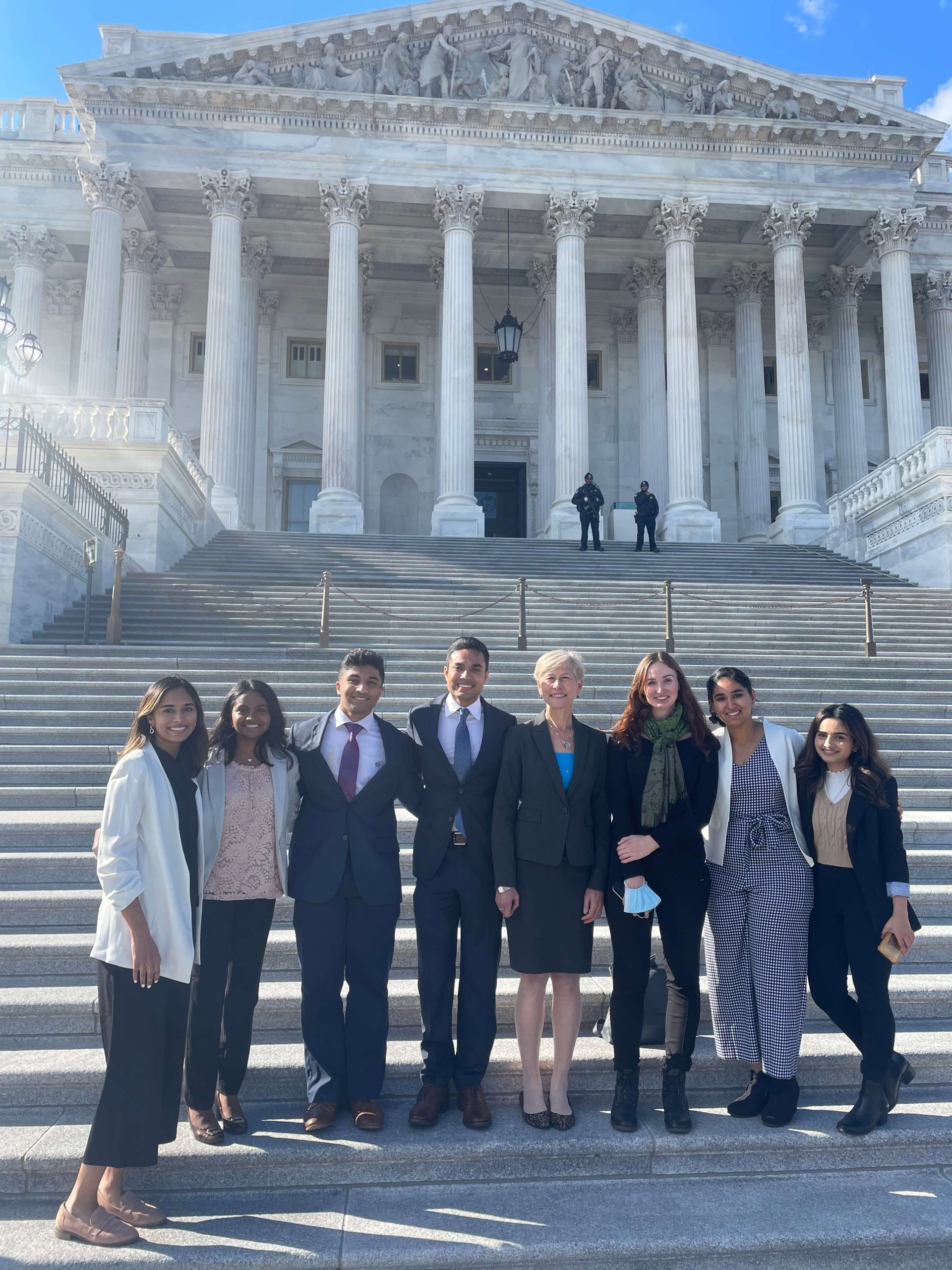
The green card backlog exacerbates this issue. For Indian nationals, the per-country cap results in decades-long waiting times. According to a survey conducted by Improve The Dream, the average Documented Dreamer arrived in the U.S. at the age of five and has lived legally in the country for 12 years. Yet, when they turn 21, their parents’ visas no longer protect them, creating a ripple effect of anxiety and instability.
The Transformation: From Grassroots to Policy Advocacy
One of Dip’s key achievements has been reshaping the narrative around Documented Dreamers. “We’re not asking for special treatment,” Patel says. “We just want to be recognized for who we are—Americans in every way except on paper.”
His message has resonated with lawmakers. In 2022, Documented Dreamer Athulya Rajakumar testified before the Senate Judiciary Committee, urging lawmakers to address the systemic flaws in legal immigration. “Hearing their stories in person makes it impossible to ignore the urgency of this issue,” Senator Alex Padilla said.
Dip Patel also emphasises the economic case for reform. According to a report by Improve The Dream, allowing Documented Dreamers to stay could result in a net fiscal benefit of over $30 billion for the U.S. economy. “These are future doctors, engineers, and entrepreneurs,” Patel says. “Why would we want to lose that talent?”
Despite progress, legislative victories remain elusive. The America’s Children Act, a bipartisan bill that would grant permanent residency to Documented Dreamers, continues to face hurdles. “There just hasn’t been enough attention to this particular flaw in the immigration system,” Patel says. “We’re finally at a point where people are recognizing that this is an issue that really needs fixing.”
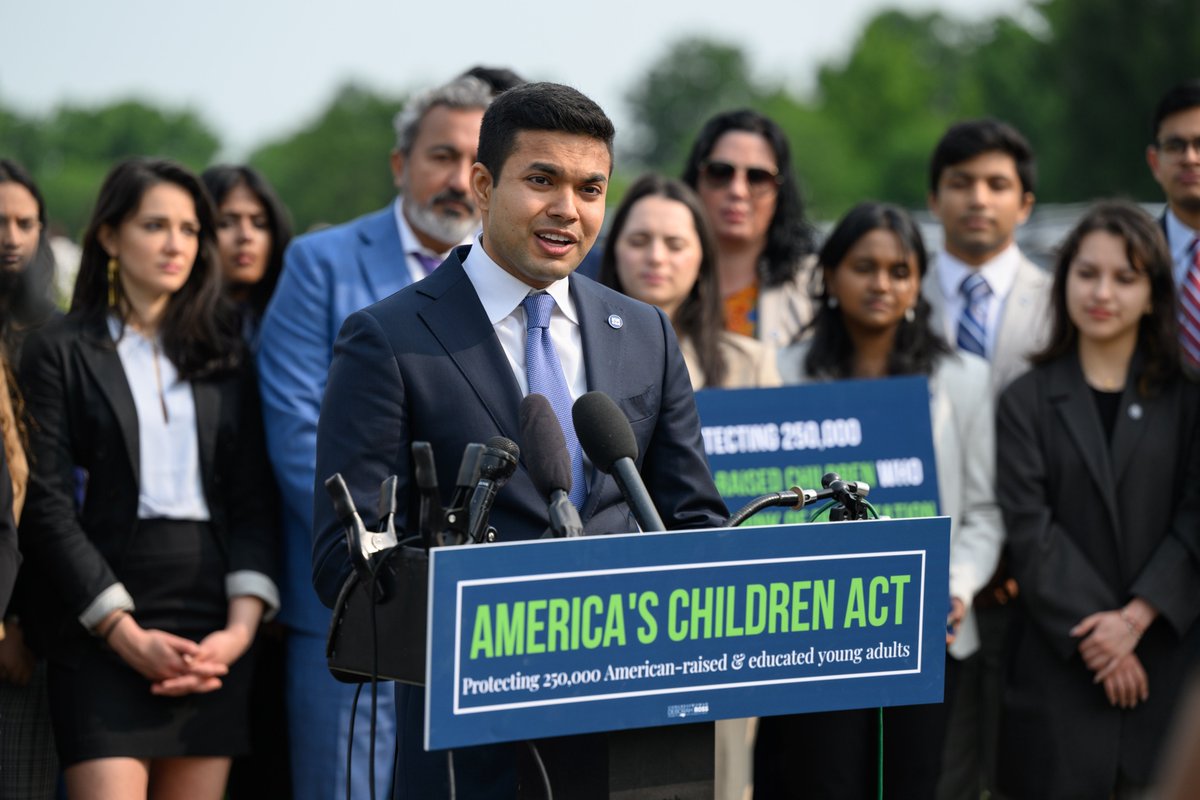
The Return: A Hopeful Future
Dip remains steadfast in his mission. Improve The Dream has grown into a network of volunteers and advocates, ensuring that Documented Dreamers remain part of the national conversation. “We won’t stop until every child who grows up here has the chance to call America home,” Dip Patel says.
As Dip Patel reflects on his journey, he does so with humility. “This isn’t about me,” he insists. “It’s about the hundreds of thousands of kids who deserve better.” But for those whose lives he’s touched, his work is transformative.
In a world divided by borders, Dip’s mission reminds us of a simple truth: home isn’t just where you’re born—it’s where you belong.

